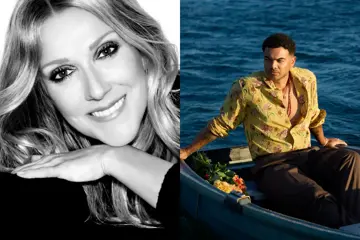Scroll through social media commentary on engineer, author and presenter Yassmin Abdel-Magied if you want to stare into the dark heart of misogyny in this country (and racism and religious intolerance). The depths of dehumanising hatred unleashed upon her for a single Facebook comment, deleted shortly thereafter and apologised for, is staggering.
This rabid brand of monstrousness was at the forefront of conversation when actor Chantelle Jamieson sat down with director Phil Rouse to discuss his 80s-influenced take on Lally Katz' gender-switched Frankenstein, adapted in turn from Mary Shelley's gothic horror.
"We spoke about that vile male world online, where they just spew out this hideous stuff, this hatred for women," Jamieson says. "The repulsion of the monster takes on a different kind of meaning when it's a female creature. The fact that it's so hideous, that nobody could love it, sounds more loudly in our ears, because even now it's still about the look of women and that's how we are judged."
First staged at the Sydney Theatre Company in 2008, Katz' changing of the gender of Shelley's monster takes on an even greater importance in this febrile environment. As does the hubris of Dr Frankenstein, here played by Michael McStay, and his god complex, creating life from death then brutally casting aside this newborn thing because she does not fit his perfect ideal.
Don't miss a beat with our FREE daily newsletter
"The cruelty of Frankenstein," Jamieson exhales. "By keeping the creature as a creature, never naming it, never giving it any kind of affection, it's easier to shove it out in the cold and not care about what it's doing, or its need to exist. He's always relegating the creature to that of a non-human, and being a non-human, it doesn't have any human needs."
"The repulsion of the monster takes on a different kind of meaning when it's a female creature."
Katz notes that in adapting the novel, she was struck by the longing of the characters. "Their longing for greatness or for companionship or for love and what lengths they would go to for their longings. And how it ruined them. And that in life, often we long most to create the things which destroy us."
Gender disparity and toxic male ego were always part of Shelley's story. The daughter of philosophers Mary Wollstonecraft, a prominent feminist who sadly died shortly after giving birth, and William Godwin, she began writing the novel aged 18, after being challenged to conjure up a spooky campfire story. Initially published anonymously, many men refused to believe she was capable of such a twisted narrative, insisting her lover Percy Bysshe Shelley must be behind it.
"What an incredible prodigy Mary Shelley was, but you do have to question whether or not part of being accepted into this literary world 200 years ago was not writing 'flowery' stories about women and showing that she could hang with the big boys, all those romantic poets?" Jamieson wonders. "Then she goes and writes the bad arse novel that basically starts horror."
Rouse's production cleverly signals this lineage by picking up on the New Romantic influence during the '80s, a time when women were carving out more rights, re-setting the story in a recognisable world of big hair, bigger clothes and neon-hued power ballads.
"Phil spoke about the synthetic quality of the '80s, how the music was all constructed with false instruments, but the essential part of what was in it was so human, and so I think that was his way of tackling the mood and meeting Lally's lightness of touch, while still bringing in elements of the gothic," Jamieson offers.
Interestingly enough, she was surprised to be offered the creature, thinking that Rouse had Katz' smaller roles of an observing bunny and bird in mind. "It sounds like a stupid story, but as an actress, you get so used to playing periphery roles that qualify the lead male, so it's totally exciting to play the character whose journey we're on because this version is told from the perspective of the creature."
Precedent doesn't perturb Jamieson either. "Finding your way into a character that has so much history and so much expectation... I can't be thinking about De Niro rising from the water. Because women don't usually play this role, I get to do my own version without that kind of pressure. And also we're not doing stitches or crazy dead makeup."
Theatre Works and Don't Look Away present Lally Katz Frankenstein, 20 — 29 July.















